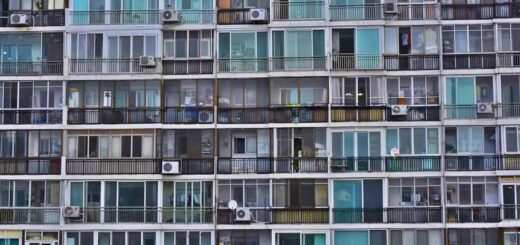Samsung Air Conditioner Blinking Lights

Are the lights on your Samsung Air Conditioner blinking? Wondering what could be causing this issue?
Look no further, as this article delves into the seven possible causes of blinking lights on your air conditioner and provides effective solutions to fix them.
From clogged filters to low refrigerant levels and failing compressors, each cause is thoroughly explored with step-by-step instructions on how to address the issue.
Regain optimal performance and enjoy a comfortable and cool environment with these troubleshooting tips.
Key Takeaways
- Regularly inspect and maintain the filter to prevent clogging or incorrect fitting.
- Check and clean filters regularly to ensure proper airflow.
- Monitor refrigerant levels and repair any leaks to maintain optimal cooling performance.
- Inspect electrical components and wiring for damage and seek professional assistance for electrical repairs.
Clogged or Incorrectly Fitted Filter
One common issue that can cause blinking lights on a Samsung air conditioner is a clogged or incorrectly fitted filter. This problem can be resolved by checking for dirt clogging and ensuring the filter is correctly fitted.
Common filter problems can occur when the filter becomes clogged with dirt and debris. This hinders proper airflow and causes the air conditioner to work harder. Troubleshooting filter installation involves inspecting the filter for any signs of dirt clogging and cleaning or replacing it if necessary.
It is also important to ensure that the filter is correctly fitted. An incorrectly fitted filter can lead to restricted airflow and inefficient cooling.
Frozen Coils
When the evaporator coils of a Samsung air conditioner freeze, it is important to power off the unit and call a professional for inspection and repair.
Inspecting the evaporator coils is crucial in determining the cause of the freezing. Frozen coils can occur due to various reasons such as insufficient airflow, low refrigerant levels, or a malfunctioning defrost system.
It is not recommended for individuals without proper training and knowledge to attempt fixing frozen coils themselves as it may lead to further damage. Calling a professional for frozen coils ensures that the issue is properly diagnosed and resolved. The professional will have the expertise and tools necessary to safely thaw the coils, identify the underlying problem, and carry out the appropriate repairs.
Prompt action is necessary to prevent further damage and ensure the air conditioner functions efficiently.
Poor Airflow
There are several possible causes for poor airflow in a Samsung air conditioner, including clogged filters and obstructed indoor or outdoor units. To troubleshoot this issue, it is important to improve ventilation and troubleshoot fan speed. Here is a table summarizing the possible causes and solutions for poor airflow:
| Possible Causes | Solutions |
|---|---|
| Clogged filters | Check and clean the filters regularly. Replace if necessary. |
| Obstructed indoor unit | Remove any furniture or curtains that may be blocking the airflow. |
| Obstructed outdoor unit | Clear any debris or bushes around the outdoor unit. |
| Fan speed issues | Check the fan speed settings and adjust if needed. Inspect the fan for any damage or obstructions. |
Low Refrigerant
Addressing low refrigerant is crucial for maintaining the proper functioning of a Samsung air conditioner. It requires checking the refrigerant level using a refrigerant meter and calling an expert if a refrigerant leak is suspected. Low refrigerant can lead to a decrease in the cooling capacity and energy efficiency of the air conditioner.
To detect a refrigerant leak, professionals use specialized tools such as electronic leak detectors or ultraviolet dye. Once a leak is identified, it is important to repair it before proceeding with the refrigerant recharge process. The refrigerant recharge process involves adding the appropriate amount of refrigerant to the system to restore the proper levels.
This should only be done by a trained technician to ensure the correct type and amount of refrigerant is used. Regular maintenance and timely detection of refrigerant leaks are essential for maximizing the performance and lifespan of a Samsung air conditioner.
Electrical Fault
Inspect the electrical wiring for broken or loose wires, and then reset the circuit breaker to address the electrical fault in the Samsung air conditioner. Electrical faults can cause blinking lights or a complete shutdown of the unit. To ensure the safety and proper functioning of your air conditioner, it is crucial to conduct regular inspections of the electrical components. Start by visually inspecting the wiring for any signs of damage, such as frayed or exposed wires. Additionally, examine the power cord for any damages or loose connections. If any issues are found, it is important to address them promptly by repairing or replacing the faulty wiring or power cord. Resetting the circuit breaker can also help to resolve electrical faults. If the issue persists or if you are unsure about handling electrical repairs, it is recommended to seek professional assistance.
| Electrical Wiring Inspection | Power Cord Examination | Circuit Breaker Reset |
|---|---|---|
| Visually inspect for broken or loose wires | Check for damages or loose connections | Reset the circuit breaker if tripped |
| Repair or replace faulty wiring | Repair or replace damaged power cord | Ensure proper functioning of the circuit breaker |
| Seek professional assistance if needed | Ensure proper connections |
Air Filter Issues
To improve the performance of your Samsung air conditioner, regularly replace the air filter every six months and ensure it is correctly fitted, as this can prevent air filter issues. Proper air filter installation techniques are crucial to maintaining the efficiency of your air conditioner. Here are some cleaning and maintenance tips to keep in mind:
- Check for dirt clogging in the air filter: Regularly inspect the air filter for any dirt or debris accumulation and clean it if necessary.
- Replace the air filter every six months: Over time, the air filter can become clogged and less effective. Replacing it every six months ensures optimal performance.
- Ensure the filter is correctly fitted: Improper installation can lead to air leakage and reduced efficiency. Make sure the air filter is securely and correctly fitted in its designated place.
Failing Compressor
Regularly monitor the error codes on your Samsung AC and promptly call for expert assistance if you see an error code like E403 indicating a failing compressor appears.
Compressor troubleshooting is crucial in maintaining the performance and efficiency of your air conditioner. The compressor is responsible for compressing the refrigerant, which is essential for cooling the air. If the compressor is not functioning properly, it can lead to poor cooling or even a complete breakdown of the unit.
To troubleshoot the compressor, it is important to check for any unusual noises, leaks, or excessive vibration. If any of these signs are present, it may be necessary to replace the compressor.
A professional technician can diagnose the issue accurately and recommend the appropriate solution, which may involve compressor replacement.
Check other Troubleshooting steps: Samsung Air Conditioner Error Codes Troubleshooting
Frequently Asked Questions
How Do I Clean the Air Filter on My Samsung Air Conditioner?
To clean the air filter on a Samsung air conditioner, follow these troubleshooting steps. Check for dirt clogging, replace the filter every six months, and ensure correct fitting. Regular cleaning improves airflow and prevents issues.
Can I Use a Generic Air Filter for My Samsung Air Conditioner or Do I Need to Use a Specific Brand?
Using a generic air filter for a Samsung air conditioner may not be recommended as it can potentially affect the performance and efficiency of the unit. It is advisable to use a specific brand for optimal results. Regular air filter cleaning is essential for better performance and to prevent issues.
What Are the Signs of Low Refrigerant in a Samsung Air Conditioner?
Signs of low refrigerant in a Samsung air conditioner include reduced cooling capacity, longer cooling cycles, and ice formation on the evaporator coils. If you suspect low refrigerant, it is essential to call an expert for inspection and potential recharge.
How Often Should I Have My Samsung Air Conditioner Inspected for Electrical Faults?
It is recommended to have a professional inspection of your Samsung air conditioner for electrical faults at least once a year to ensure safe operation. However, it is not safe to use the air conditioner during a thunderstorm due to the risk of electrical surges.
How Long Does a Compressor Typically Last in a Samsung Air Conditioner Before Needing to Be Replaced?
The average lifespan of a compressor in a Samsung air conditioner varies but typically lasts around 10-15 years. Signs of compressor failure include loud noises, insufficient cooling, and frequent system breakdowns. Regular maintenance can help prolong the compressor’s lifespan.
Conclusion
In conclusion, the Samsung Air Conditioner blinking lights issue can be caused by various factors such as:
- Clogged filters
- Frozen coils
- Poor airflow
- Low refrigerant levels
- Electrical faults
- Failing compressors
By following the provided troubleshooting steps, users can effectively address these issues and restore the optimal performance of their air conditioner.
Just like solving a puzzle, tackling each problem one by one will lead to a cool and comfortable environment, ensuring a pleasant experience for users.



